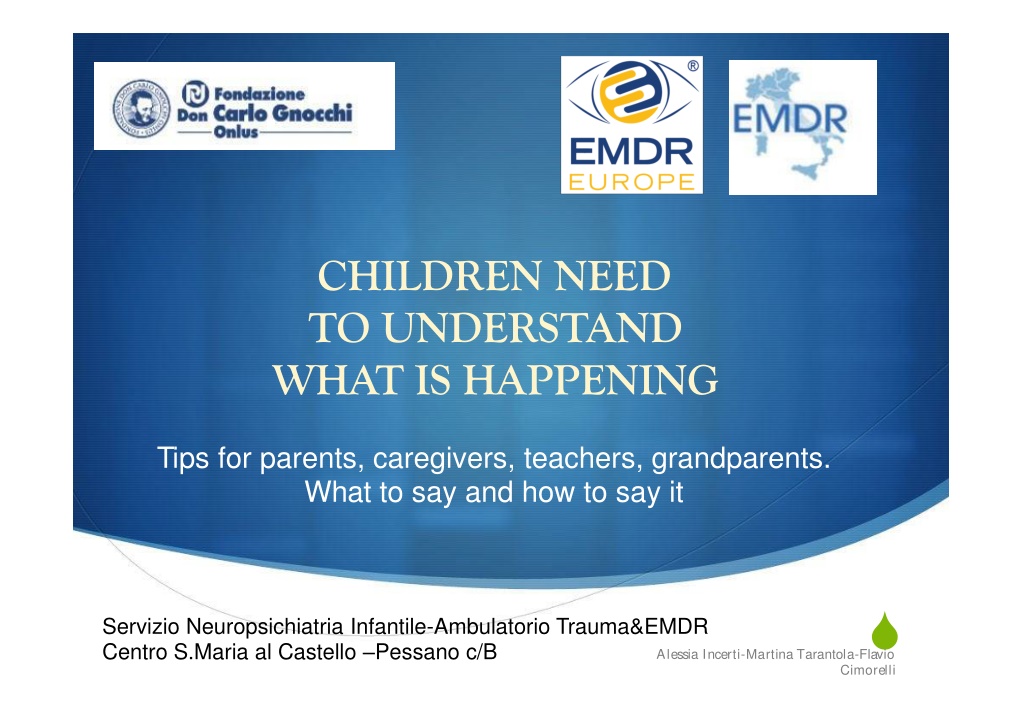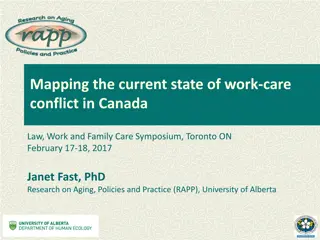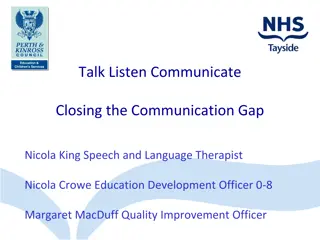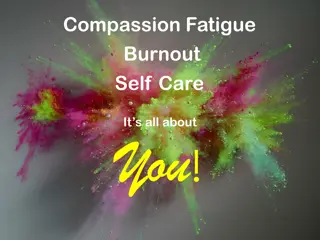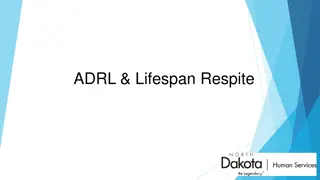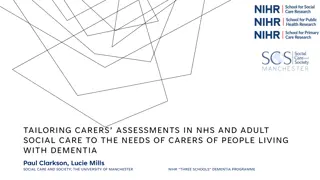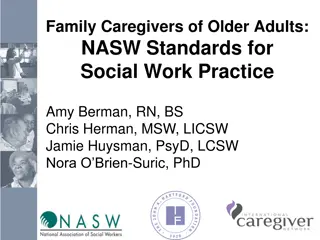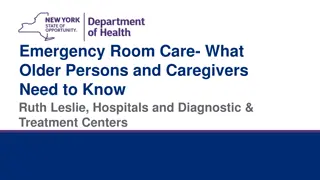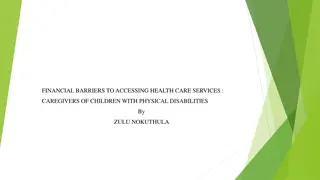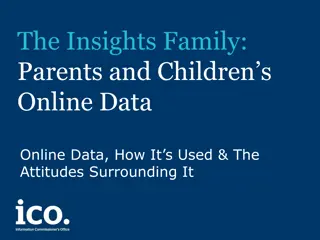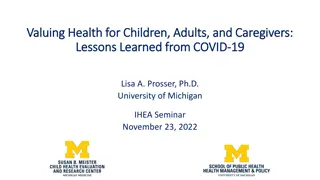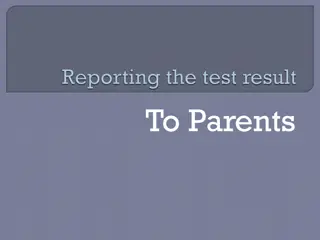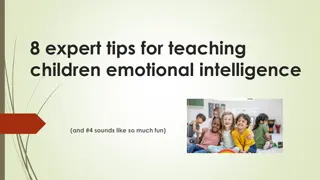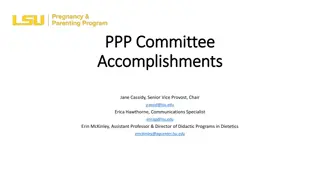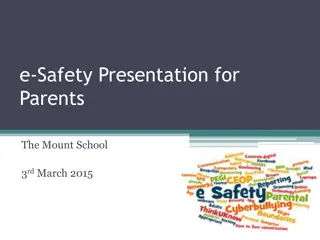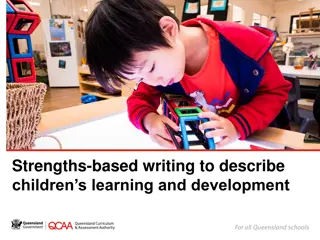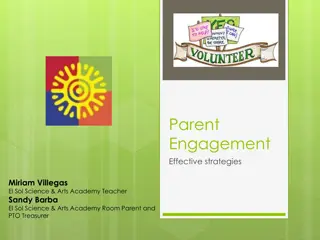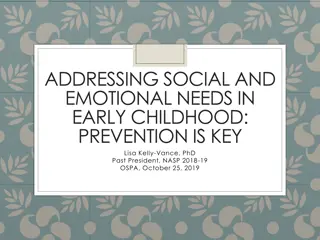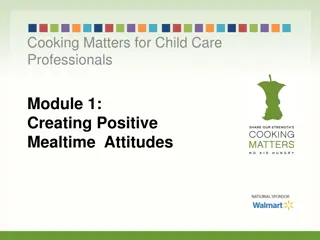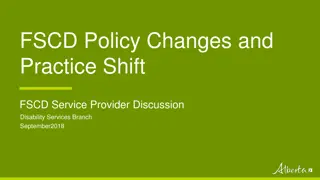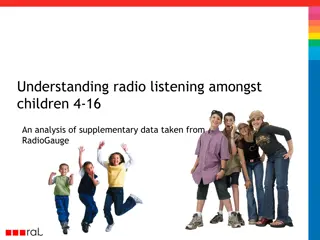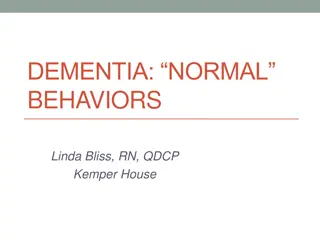Helping Children Understand What is Happening: Tips for Parents, Caregivers, and Teachers
Parents, caregivers, teachers, and grandparents can help children understand the current situation using simple language and visual aids. It's important to explain complex topics like the coronavirus outbreak in a way that children can comprehend. Use AAC symbols and honest yet reassuring language to address their concerns and make them feel safe during these challenging times.
Download Presentation

Please find below an Image/Link to download the presentation.
The content on the website is provided AS IS for your information and personal use only. It may not be sold, licensed, or shared on other websites without obtaining consent from the author. Download presentation by click this link. If you encounter any issues during the download, it is possible that the publisher has removed the file from their server.
E N D
Presentation Transcript
CHILDREN NEED TO UNDERSTAND WHAT IS HAPPENING Tips for parents, caregivers, teachers, grandparents. What to say and how to say it Servizio Neuropsichiatria Infantile-Ambulatorio Trauma&EMDR Centro S.Maria al Castello Pessano c/B Alessia Incerti-Martina Tarantola-Flavio Cimorelli
TEXT BY Dr. ALESSIA INCERTI Psychologist, psychotherapist, Trauma & EMDR Outpatient Fondazione Don Carlo Gnocchi Clinic center - Pessano C / B- Milan Italy D r. Martina T arantola Psychomotor therapist Fondazione Don Carlo Gnocchi Clinic center - Pessano C / B- Milan Italy Alessia Incerti-Martina Tarantola-Flavio Cimorelli
What is happening? How to explain the situation to children that don't know or can't read. Use AAC symbols Alessia Incerti-Martina Tarantola-Flavio Cimorelli
What is happening? DEAR CHILDREN THESE ARE SOME SPECIALS DAYS YOU CANNOT GO TO SCHOOL YOU CANNOT GO TO PLAY WITH THE THERAPIST WHY NOT ? Alessia Incerti-Martina Tarantola-Flavio Cimorelli
COMING THE CORONAVIRUS. IN ITALY IS CORONAVIRUS MAKES PEOPLE SICK SEVERE COUGH AND WITH FEVER Alessia Incerti-Martina Tarantola-Flavio Cimorelli
il THE VIRUS HAS THE CROWN Alessia Incerti-Martina Tarantola-Flavio Cimorelli
SICK PEOPLE DOCTORS ARE TREATING TO HELP THEM WE HAVE STAYAT HOME! BUT TO Alessia Incerti-Martina Tarantola-Flavio Cimorelli
IS A BIT BORING STAYING HOME THERE ARE FUN GAMES TO DO BUT MANY WITH MUMMY AND DADDY Alessia Incerti-Martina Tarantola-Flavio Cimorelli
GONE AWAY WHEN CORONAVIRUS IS YOU CAN LEAVE YOUR HOME Alessia Incerti-Martina Tarantola-Flavio Cimorelli
YOU CAN LEAVE YOUR HOME GO TO SCHOOL Alessia Incerti-Martina Tarantola-Flavio Cimorelli
YOU CAN LEAVE YOUR HOME TO PLAY AND GO WITH THE THERAPIST Alessia Incerti-Martina Tarantola-Flavio Cimorelli
Dear parentsand caregivers, we cannot meet you in our clinics but we want to support you. With children, it is important not to deny what is happening, but be careful not to over-expose them. SOME INFORMATION FOR YOU Alessia Incerti-Martina Tarantola-Flavio Cimorelli
1. CHOOSE INFORMATION Children need CLEAR and TRUE information, filtered by age, so that they can understand. It is important not to expose or over-expose children to images and news that are not suitable for their level of understanding. Choose 1-2 moments a day to dedicate TOGETHER to check the news or look for information on the web, in order to explain what emerges, make it understandable, and reassure children through a realistic and positive-oriented focus. Explain to children that there are many people dealing with Coronavirus and highlight these aspects when they emerge on TV and on the web. Alessia Incerti-Martina Tarantola-Flavio Cimorelli
2. MAKE CHILDREN FEEL SAFE Help children continue living as children: they should play , talk about fun things, do their homework and learn new things. Children need to be with mom and dad and other people they trust without seeing only their frightened and alarmed faces. Remember that children are small but they notice youremotionsand stateof mind. Alessia Incerti-Martina Tarantola-Flavio Cimorelli
2. MAKE CHILDREN FEEL SAFE To feel safe, a child needs to be with an adult capable of transmitting affection and mastery . Self-control first. C hildren notice adults inconsistencies. For example, if you say: "There is no need to be afraid", but you empty supermarkets shelves, you can cause confusion and the child will not know whether to trust you. Trust is essential to give security . Alessia Incerti-Martina Tarantola-Flavio Cimorelli
2. MAKE CHILDREN FEEL SAFE Remember that if you cannot calm yourself down, you cannot make your child feel safe! In these cases, seek support from another family member, the community , the network of friends or refer to clinicians. Alessia Incerti-Martina Tarantola-Flavio Cimorelli
DEAR TEACHERS Reassure your students with positive messages of emotional closeness. Use the same daily greeting you would use if you were in the classroom. Maintain a routine even for the youngest children in kindergarden: G ood morning and the calendar together, send pictures or your video greeting to the parents WhatsApp group. P ropose creative works to do at home. Read a story for them. Alessia Incerti-Martina Tarantola-Flavio Cimorelli
DEAR TEACHERS In Primary and Secondary School: Repeat some aspects of scholastic routine, for example give tasks and indicate the days of the week in which to perform them. Correct the tasks together in the virtual class. Alessia Incerti-Martina Tarantola-Flavio Cimorelli
DEAR TEACHERS In High School: Use the web for teaching as well. Send messages and video messages to the class group, give a timetable for the subjects. Assign regularly scheduled tasks and ask students to send feedback on their work. Correct the assignments together in the virtual class. Stay connected also with an individual message for each student. Maybe the teaching team can divide the students in order to maintain a privileged relationship channel. Remember that intense and wide-ranging emotions emerge in adolescence and there may be conflicts with the parents. Having another adult to communicate with is important! Alessia Incerti-Martina Tarantola-Flavio Cimorelli
Even if we are far away , do not hesitate to ask us for support for you or your children. Alessia Incerti-Martina Tarantola-Flavio Cimorelli
